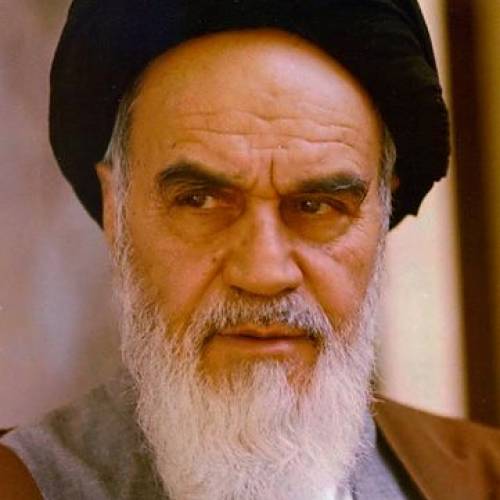 https://heaven.world/en/ruhollah-chomeini
https://heaven.world/en/ruhollah-chomeini
Firstname
Ruhollah
Lastname
Chomeini
Name
Ruhollah Chomeini
lived from:
1902-00-00
lived until:
1989-00-00
Grand Ayatollah Sayyid Ruhollah Mūsavi Khomeini, known in the Western world as Ayatollah Khomeini, was an Iranian Shia Muslim religious leader, revolutionary and politician. He was the founder of the Islamic Republic of Iran and the leader of the 1979 Iranian Revolution that saw the overthrow of the Pahlavi monarchy and Mohammad Reza Pahlavi, the Shah of Iran. Following the revolution, Khomeini became the country's Supreme Leader, a position created in the constitution of the Islamic Republic as the highest-ranking political and religious authority of the nation, which he held until his death. He was succeeded by Ali Khamenei.
Khomeini was a marja in Twelver Shia Islam, a Mujtahid or faqih and author of more than 40 books, but he is primarily known for his political activities. He spent more than 15 years in exile for his opposition to the last Shah. In his writings and preachings he expanded the theory of velayat-e faqih, the "Guardianship of the Islamic Jurist", to include theocratic political rule by Islamic jurists. This principle, was appended to the new Iranian constitution after being put to a referendum. Khomeini called democracy the equivalent of prostitution.
He was named Man of the Year in 1979 by American news magazine TIME for his international influence, and has been described as the "virtual face of Shia Islam in Western popular culture" where he remains a controversial figure. In 1982, Khomeini survived one military coup attempt. Khomeini was known for his support of the hostage takers during the Iran hostage crisis, his fatwa calling for the murder of British Indian novelist Salman Rushdie, and for referring to the United States as the "Great Satan". Khomeini has been criticized for these acts and for human rights violations of Iranians, and the pursuit of victory in the Iran–Iraq War that ultimately proved futile.
He has also been lauded as a "charismatic leader of immense popularity", a "champion of Islamic revival" by Shia scholars, who attempted to establish good relations between Sunnis and Shias, and a major innovator in political theory and religious-oriented populist political strategy.
Khomeini held the title of Grand Ayatollah and is officially known as Imam Khomeini inside Iran and by his supporters internationally. He is generally referred to as Ayatollah Khomeini by others. In Iran, his gold-domed tomb in Tehrān's Behesht-e Zahrāʾ cemetery has become a shrine for his supporters, and he is legally considered "inviolable", with Iranians regularly punished for insulting him.
Tehran (Tehran Province), Iran
https://en.wikipedia.org/wiki/Ruhollah_Khomeini